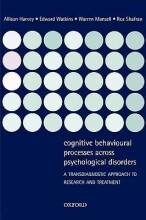The impact of illness on patients and their families
14 important questions on The impact of illness on patients and their families
Individuals facing illness are considered to have to deal with...
- Uncertainty - tries to understand the meaning and severity of the first symptoms
- Disruption - Becomes evident that indiv has sign. illness. Crisis characterised by intense stress and high level of dependence on health professionals and/or other people who are emotionally close to the individual
- Striving for recovery - attempts to gain some form of control over their illness by means of active coping
- Restoration of well-being- New emotional equilibrium based on acceptance of the illness and its consequences.
According to Shelley Taylor on what does adjustment to threatening events center?
- Searching for meaning in the experience
- Attempting to gain a sense of control or mastery over the experience
- Making efforts to restore self-esteem
Adjustment to chronic disease by Stanton (2001)
- mastery of disease-related adaptive tasks
- Preservation of functional status
- Perceived quality of life in several domains
- Absence of psychological disorders
- Low negative affect
- Higher grades + faster learning
- Never study anything twice
- 100% sure, 100% understanding
Snyder and aspects of hope
Frederickson. Key benefits of maintaining + emotions
- promotion of psychological resilience and more effective problem solving
- Dispelling of negative emotions
- Triggering of an upward spiral of positive feelings
Five domains of positive change as a result of stress or trauma
- Enhanced personal relationships
- Greater appreciation of life
- A sense of increased personal strength
- Greater spirituality
- Valued change in life priorities and goals
Moos and Schaefer identified three processes taht resulted from crisis of illness
- Cognitive appraisal - appraises the implications of the illness for their lives
- Adaptive tasks
- Coping skills
The adaptive tasks required as a result of chronic illness include
- Dealing with the symptoms of the disease and the possibility of pain
- Maintaining control over the illness
- Managing communicative relationships with health professionals
- Facing and preparing for an uncertain future
- Preserving self-image and possibly self-esteem when challenged
- Maintaining control and emotional balance over health and life in general
- Dealing with changes in relationships with family and friends.
Stages in a continuum of adaptations
Three specific factors in parental coping styles when faced with illness of child
- Coping by maintaining and focusing on family life and the relationships therein
- Coping by trying to maintain well-being trough the use of social relationships
- Coping by having relationships with medical staff and parents of other ill children.
Patient's support system
Benefits of social support include
- increased adherence to treatment and self-care
- less distress/better emotional adjustment and coping with stressful events
- better physiological functioning
- reduced mortality or increased survival
Four types of unsupportive interation
- Insensitivity
- Disconnecting or disengaging behavior
- Blaming or fault-finding
- Forced optimism
Resistance factors to caregiver distress
- personality
- motivation
- family environment
- support resources
- cognitive appraisals of the situation
- coping responses
The question on the page originate from the summary of the following study material:
- A unique study and practice tool
- Never study anything twice again
- Get the grades you hope for
- 100% sure, 100% understanding































